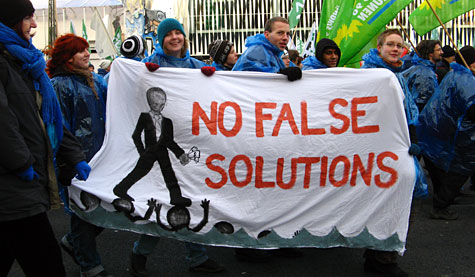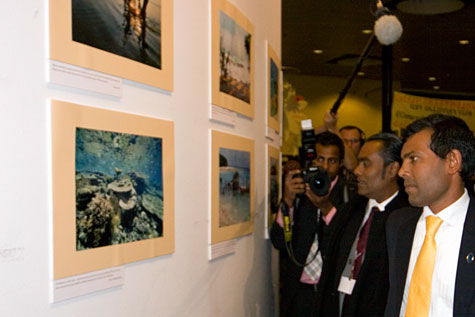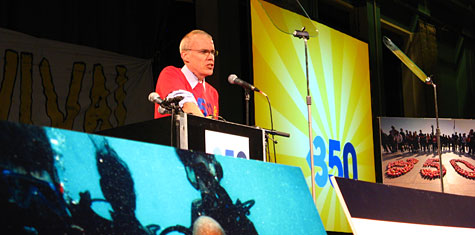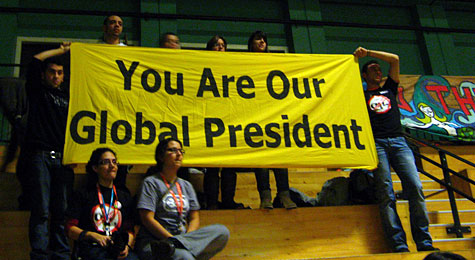COP15 NOT A VICTORY FOR MALDIVES
The United Nations Climate Change Conference (COP15), which was held in Copenhagen from December 7 to 18, was a huge disappointment for millions of people who hoped a fair and binding treaty aiming to reduce global greenhouse gas emissions would be reached to succeed the flawed Kyoto Protocol. Instead, world leaders produced a non-binding accord, and failed to agree to contain global temperatures at 1.5 degree Celsius above pre-industrial levels.
This means world leaders did not agree to limit the global CO2 emissions to 350 parts per million. The Maldives, which hosted a number of events coinciding with the International Day of Climate Action on October 24, including a headline-grabbing underwater cabinet meeting, has gained nothing to celebrate from COP15.

350.org, which has been pivotal in building a global movement around the number 350 and the science behind it, reflects on the failure of COP15:
You’ll likely hear the Copenhagen drama spun in a thousand different ways, but here’s our honest take on the outcome: our leaders have been a disappointment, and the talks have ended without any kind of fair, ambitious, or legally binding global agreement. It’s unclear whether the weak “accord” which emerged early this morning will provide a platform strong enough to deliver the kind of action we’ll need in 2010 and beyond.
TckTckTck, the campaign initiated by several international organisations and which has mobilised unprecedented numbers of people behind a new global climate movement, writes on the failure of COP15:
Despite overwhelming scientific evidence, and massive popular support from citizens in countries North and South, world leaders chose national political self-interest over the fate of future generations and failed to resolve the issues blocking the road towards a just outcome.
Kumi Naidoo, executive director of Greenpeace International, expresses disappointment over how COP15 ended in an anti-climax:
Not fair, not ambitious and not legally binding. The job of world leaders is not done. Today they failed to avert catastrophic climate change.
The city of Copenhagen is a climate crime scene tonight, with the guilty men and women fleeing to the airport in shame. World leaders had a once in a generation chance to change the world for good, to avert catastrophic climate change. In the end they produced a poor deal full of loopholes big enough to fly Air Force One through.
We have seen a year of crises, but today it is clear that the biggest one facing humanity is a leadership crisis.

The only refreshing thing to emerge is a new global movement of citizens, spread across the globe. Avaaz.org, which is a partner organisation of TckTckTck campaign and has mobilised thousands of people through Internet, stresses the significance of this new movement and the hope it symbolises:
In Copenhagen, leaders didn’t make history—but the world’s people did. A year of unprecedented action on climate change reached unimagined heights in the last two weeks: thousands upon thousands of vigils, rallies, and protests; floods of phone calls and messages sent; millions of petition signatures—all calling for the fair, ambitious, and binding climate treaty we still need and still will win.






